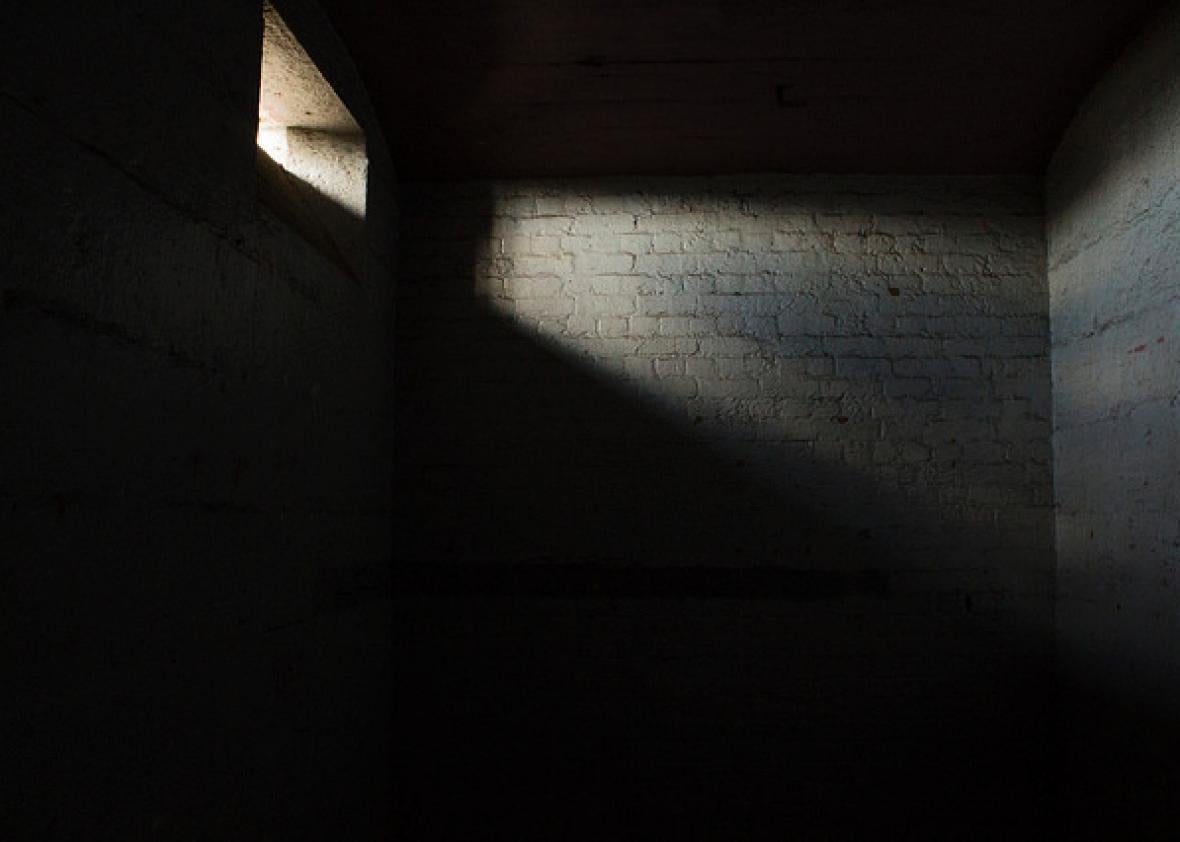The movement for solitary confinement reform scored a victory last Thursday when the New Jersey state legislature voted to strictly limit the use of solitary confinement in the state’s prisons. Under the new rules, correctional facilities would be barred from placing certain highly vulnerable populations—including pregnant women, LGBTQ people, and those with mental illnesses—in solitary. The bill mandates that solitary confinement be used only as a last resort; prohibits solitary confinement for more 15 consecutive days; and requires daily evaluations of prisoners in solitary. If signed into law, the measure will also ban the use of solitary for inmates age 21 and younger and 65 and older. It is one of the most progressive bills of its kind in the country.
Solitary confinement is torture. In a prison system that regularly dehumanizes and brutalizes inmates, “administrative segregation” stands out as one of the most egregious and unconscionable punishments regularly deployed by correctional facilities. Inmates in solitary are deprived of normal human interaction, which often leads to severe psychological disorders. Solitary confinement may heighten an inmate’s risk of suicide, yet paradoxically, suicidal inmates are often taken from the general prison population and put into solitary. Indeed, a high percentage of inmates in solitary suffered from mental illness before being placed in administrative segregation—illnesses that are exacerbated by near-total isolation and physical confinement. And some prisons have used solitary to punish women who report their rape and pregnant women with pregnancy-related depression.
What’s worse, solitary is often used in a highly arbitrary manner, compounding its capricious cruelty. As the ACLU has painstakingly documented, this is currently the case in New Jersey. Consider just three instances in which New Jersey prisons saw fit to condemn an inmate to solitary confinement:
- One man received 90 days in solitary confinement for allegedly using foul language with a staff member; witnesses said it was the officer, not the inmate, who used the foul language.
- An inmate working as a “jailhouse lawyer” received an 810-day solitary confinement sentence for helping female prisoners file a class-action civil rights suit. Letters from the prisoners’ attorneys were considered “contraband.”
- A man received 180 days of solitary confinement because he was prescribed 50 milligrams of Benadryl—an over-the-counter antihistamine—and had two 25 milligrams pills rather than a single pill.
The Supreme Court has indicated that it might soon move to curb the use of solitary confinement under the Eighth Amendment. If more states followed the New Jersey legislature’s lead and limited the practice, the justices would likely feel emboldened to rule that certain uses violate our evolving standards of decency. But the New Jersey bill faces one final hurdle: It must be signed by Gov. Chris Christie, who has not yet indicated his views on the measure. Unfortunately, the bill passed on a party-line vote, with Republicans in opposition—an indication that Christie, a Republican, may well follow his party and veto the bill. On the other hand, Christie himself is currently staring down 10 years in prison for official misconduct. If that can’t help him empathize with the plight of inmates, nothing can.
